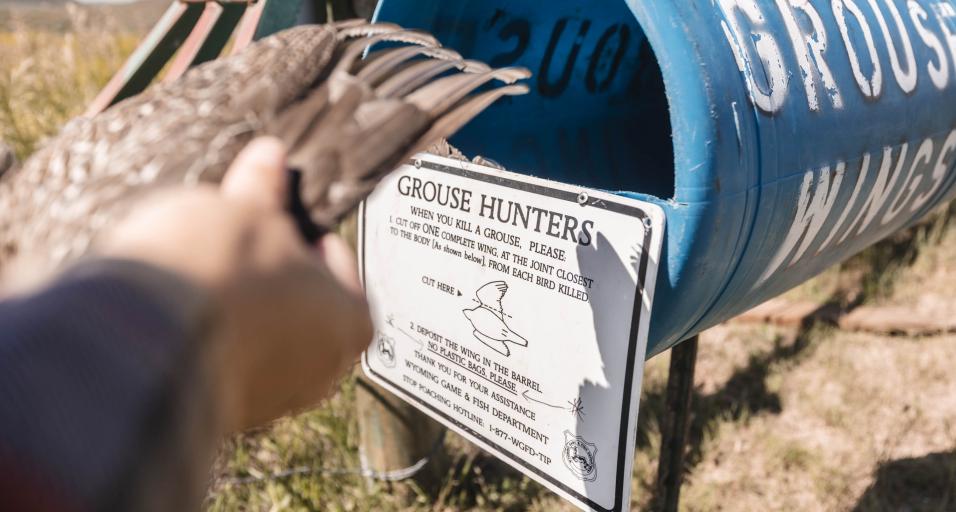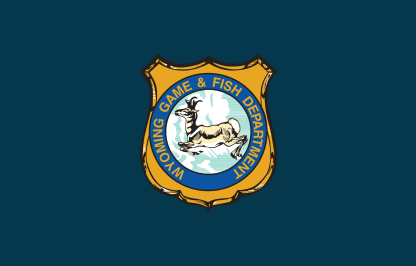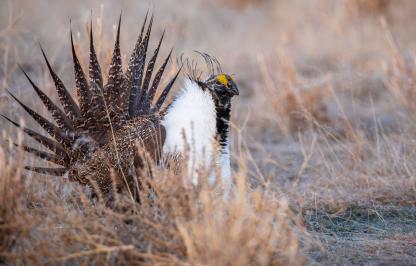CHEYENNE — Sage-grouse hunters in Wyoming are encouraged to use wing barrels to help the Wyoming Game and Fish Department have a more complete picture of harvest within the state.
Game and Fish asks hunters to deposit one wing from each harvested sage-grouse in roadside collection barrels. Hunters should remove one wing at the elbow joint and deposit it in the nearest wing barrel. Handling the wing with care is important to ensure accurate data collection. Legally, the other fully-feathered wing must remain attached to the bird while in the field and during transport.
“The collection of sage-grouse wings provides crucial data for monitoring population health and making informed management decisions,” said Nyssa Whitford, Game and Fish sage-grouse and sagebrush biologist. “Wildlife biologists gather data from wings that would otherwise be difficult to obtain and offer important information about reproductive success.”
Last year hunters dropped just over 2,800 wings in collection barrels statewide. Barrels are found during hunting season at specific locations within the sagebrush steppe regions, primarily in central and southwest Wyoming. They are often located along primary exit roads near popular hunting areas and wildlife management areas, or in cooperation with local landowners and conservation organizations. Hunters also can drop-off wings and the respective harvest locations to a roadside hunter check station or a Game and Fish regional office if there isn't a convenient barrel.
“We appreciate hunters taking the time to deposit one wing from each harvested bird. It is important to us that wings get deposited and they are not removed from the barrels by the public,” Whitford said.
After the hunting season, Game and Fish biologists analyze the wings to determine an estimate of reproductive success. Using length and wear of the primary feathers, each wing is aged as a chick, yearling or adult and sex is determined by the size or measurement of the wing.
“This data helps us determine the average number of chicks per hen that were produced for the year and used in conjunction with spring lek counts, and gives us insight into the overall health of sage-grouse populations and trends,” Whitford said. “The trends we detect help to guide long-term conservation efforts and on-the-ground habitat improvement projects.”
New this year for sage-grouse hunters
One major change for 2024 is that all licensed sage-grouse hunters — daily, annual, Pioneer and lifetime license holders — will be required to carry a free, annual sage-grouse hunting permit to help Game and Fish further expand efforts to survey sage-grouse hunters on their hunt experience. The permit is available at Game and Fish offices and online through the Game and Fish website.




